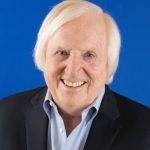The Oath of Leadership

Personal Development
August 14, 2014
Chip Bell
Innovative Customer Service Keynote Speaker
Topics
Covenant, Oath, serviceEvery president since George Washington has started the role of president by taking the oath of office specified in the U.S. Constitution. Our founding fathers saw it as a crucial pledge to be made by the highest leader of the country.
“I do solemnly swear that I will faithfully execute the Office of President of the United States, and will to the best of my ability, preserve, protect and defend the Constitution of the United States.”
I have often wondered what the oath of every leader should be and what would happen if leaders were required to place their hand on a Bible and publicly express a covenant to the people they served. And, what if the oath of presidential office were the model for that expression?
“I do solemnly swear”
The phrase acknowledges the serious nature of the role of influence placed in the hands of all leaders. Taking the role seriously does not imply taking oneself seriously nor does it mean infusing execution with somberness. Leadership should be a joyful opportunity to serve. The use of the word “swear” acknowledges a promise. As kids we dramatically added, “and, cross my heart and hope to die." It implied it was really, really bad to break such a pledge. What if all leaders took their role with the same solemnity?
“faithfully execute”
Faithfully is the opposite of haphazard or mediocre. It suggests boldness and intention.
But, the most important word is execute. It does not mean to “faithfully plan” or “faithfully meet” or “faithfully organize.” Execute means to make something happen. Until you execute, all decisions are just plain old intentions. In the end, all the planning and preparing is just “getting ready to.” Execution—putting skin in the game--is the true test of commitment. “I believe, I support, I approve” are all just weasel words unless they are coupled with visible demonstration.
“Will to the best of my ability”
Best of my ability means “total commitment” or “giving it all I have.” It is the pursuit of excellence with an unwillingness to settle for anything short of greatness. If I ask you to take a piece of chalk and put a mark high on the wall and you did and then I asked you to mark the wall as high as you possibly could; the second mark is likely to be higher than the first. The space between the two lines is the substance of best. Great leaders not only demand the best of themselves, they expect the best of all they influence.
“Preserve, protect and defend”
Preserve means to ensure permanence. Protect and defend suggest treatment with a sense of reverence and importance. We protect and defend our family because they are important to us. And, while the president is committed to the U.S. constitution, leaders in organizations should be dedicated to the mission of the organization and the brand it seeks to be in the marketplace it serves. It is also a commitment to the employees that leaders are entrusted to support.
Leadership is not about the wielding of power to foster gain, but rather the welding of people together to forge unity of purpose. Just as great presidents noticeably served of the people, and for the people, great leaders influence with the soul of service in pursuit of distinction. As a leader, are you willing to put your hand on the Bible, raise your right hand, and take an oath of leadership?
Chip R. Bell is a renowned keynote speaker and author of several national best-selling books. His newest book is The 9½ Principles of Innovative Service (www.simpletruths.com). He can be reached at www.chipbell.com.






[…] Read the post… […]
[…] Lead Change Group […]